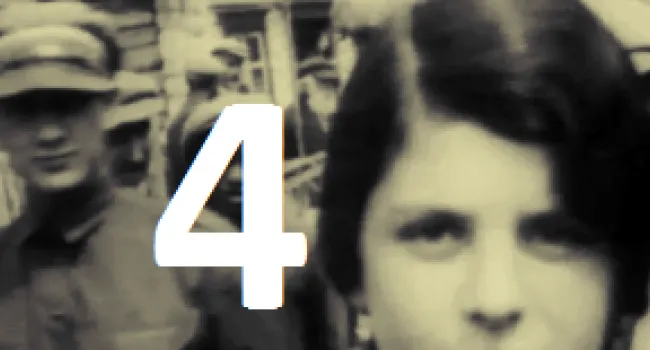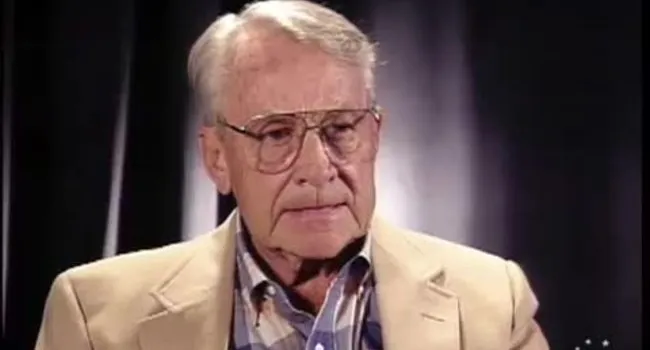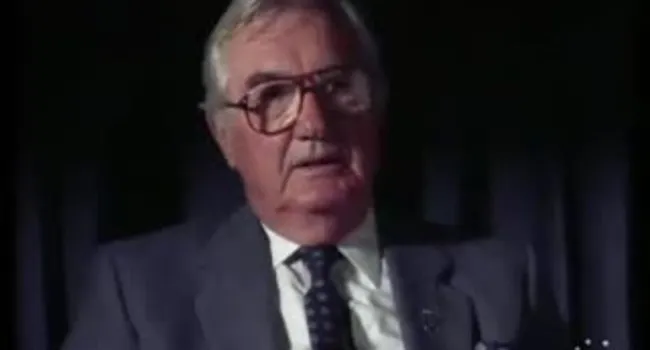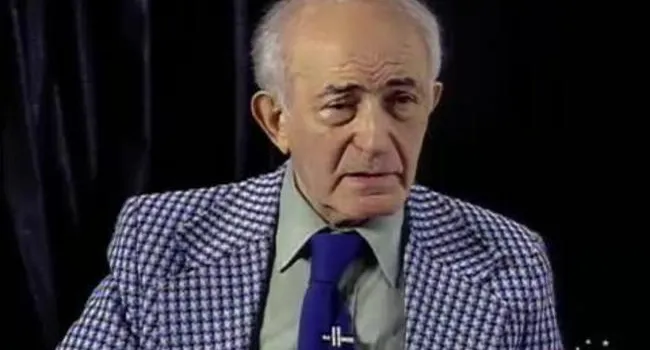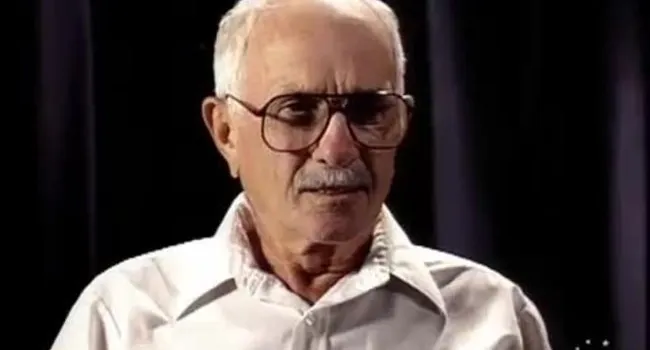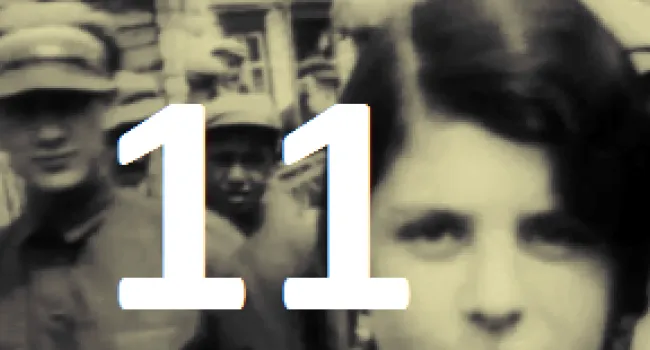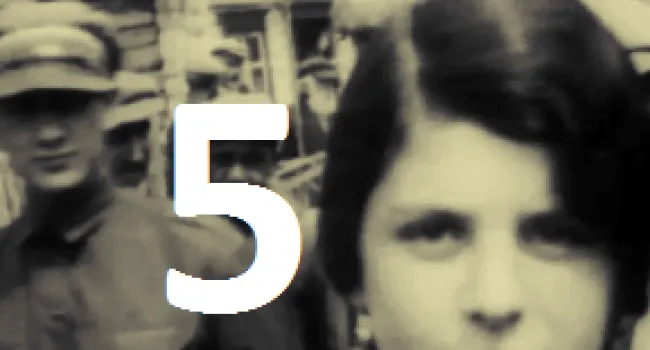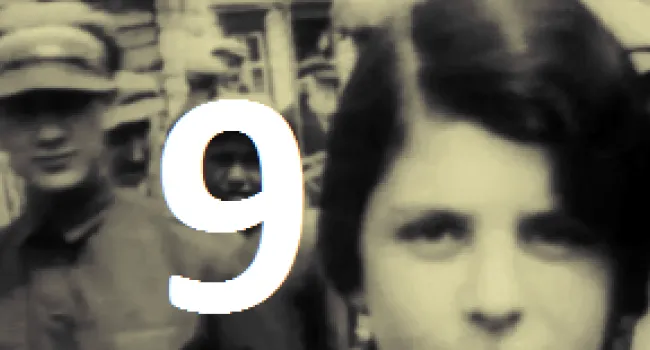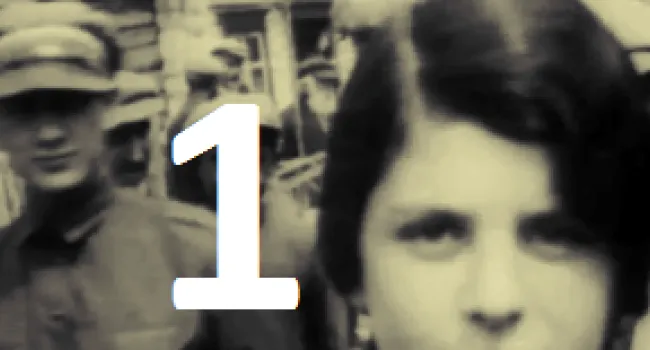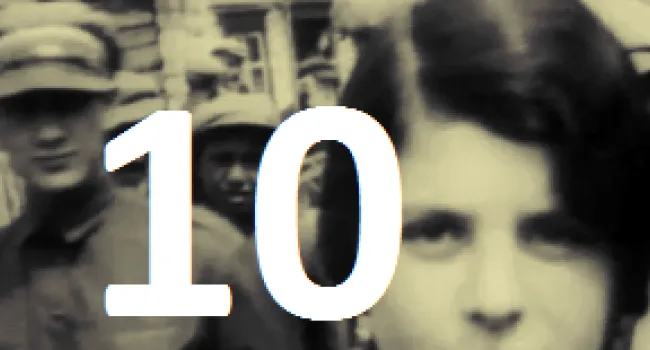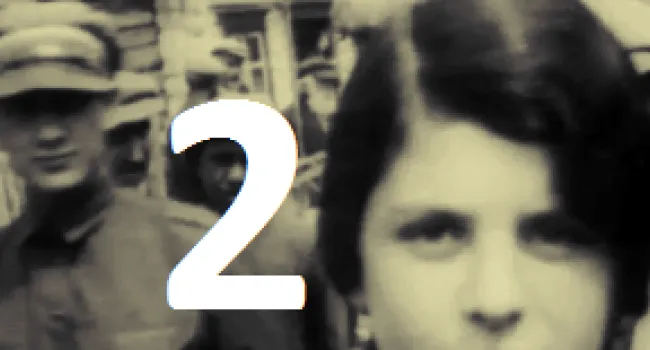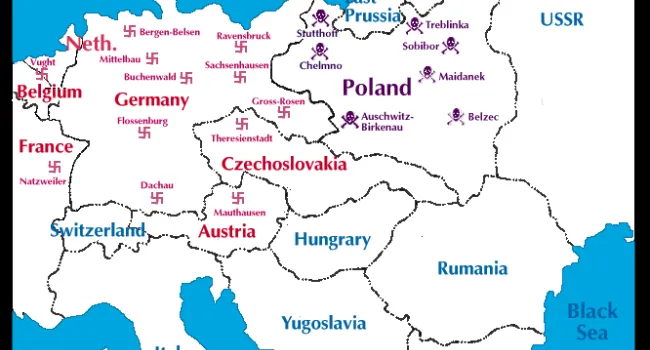Lewis Rossinger was born in 1938 in Hungary. Anti-Semitism was widespread and bullies in school called him a "dirty Jew." Rossinger was caught by the Gestapo and taken to a railroad station to be deported but he escaped. He became a laborer for one of the Gestapo hotels. He was aware that Jewish people were being moved out in large numbers. "I wouldn't buy a newspaper because lots of Jews got caught buying newspapers." When the war ended, the American Army helped Jews locate their families. Rossinger was placed in a special camp to recover; there was an American hospital next door. When he returned home; everyone was gone—his parents had been killed in a camp. "Can't forgive or forget; still don't trust. Anti-Semitism is a mental disease. Some don't believe in the Holocaust; it needs to be taught in history."
Standards
- 5.3 Demonstrate an understanding of the economic, political, and social effects of World War II, the Holocaust, and their aftermath (i.e., 1930–1950) on the United States and South Carolina.
- 6.5.CE Explain the impact of nationalism on global conflicts and genocides in the 20th and 21st centuries.
- 7-4 The student will demonstrate an understanding of the causes and effects of world conflicts in the first half of the twentieth century.
- The influence of both world wars and the worldwide Great Depression are still evident. To understand the effects these events had on the modern world, the student will utilize the knowledge and skills set forth in the following indicators:
- 7-4.5 Summarize the causes and course of World War II, including drives for empire, appeasement and isolationism, the invasion of Poland, the Battle of Britain, the invasion of the Soviet Union, the "Final Solution," the Lend-Lease program, Pearl Harbo...
- 7-4.6 Analyze the Holocaust and its impact on European society and Jewish culture, including Nazi policies to eliminate the Jews and other minorities, the Nuremberg trials, the Universal Declaration of Human Rights, the rise of nationalism in Southwest...
- The influence of both world wars and the worldwide Great Depression are still evident. To understand the effects these events had on the modern world, the student will utilize the knowledge and skills set forth in the following indicators:
- 8.5.CO Compare South Carolina and U.S. wartime contributions and demobilization after World War II.
- This indicator is intended to encourage inquiry into the significant causes of World War I and the impacts of the Treaty of Versailles, including its failure to prevent future global conflicts.
- USHC-7 The student will demonstrate an understanding of the impact of World War II on the United States and the nation’s subsequent role in the world.

